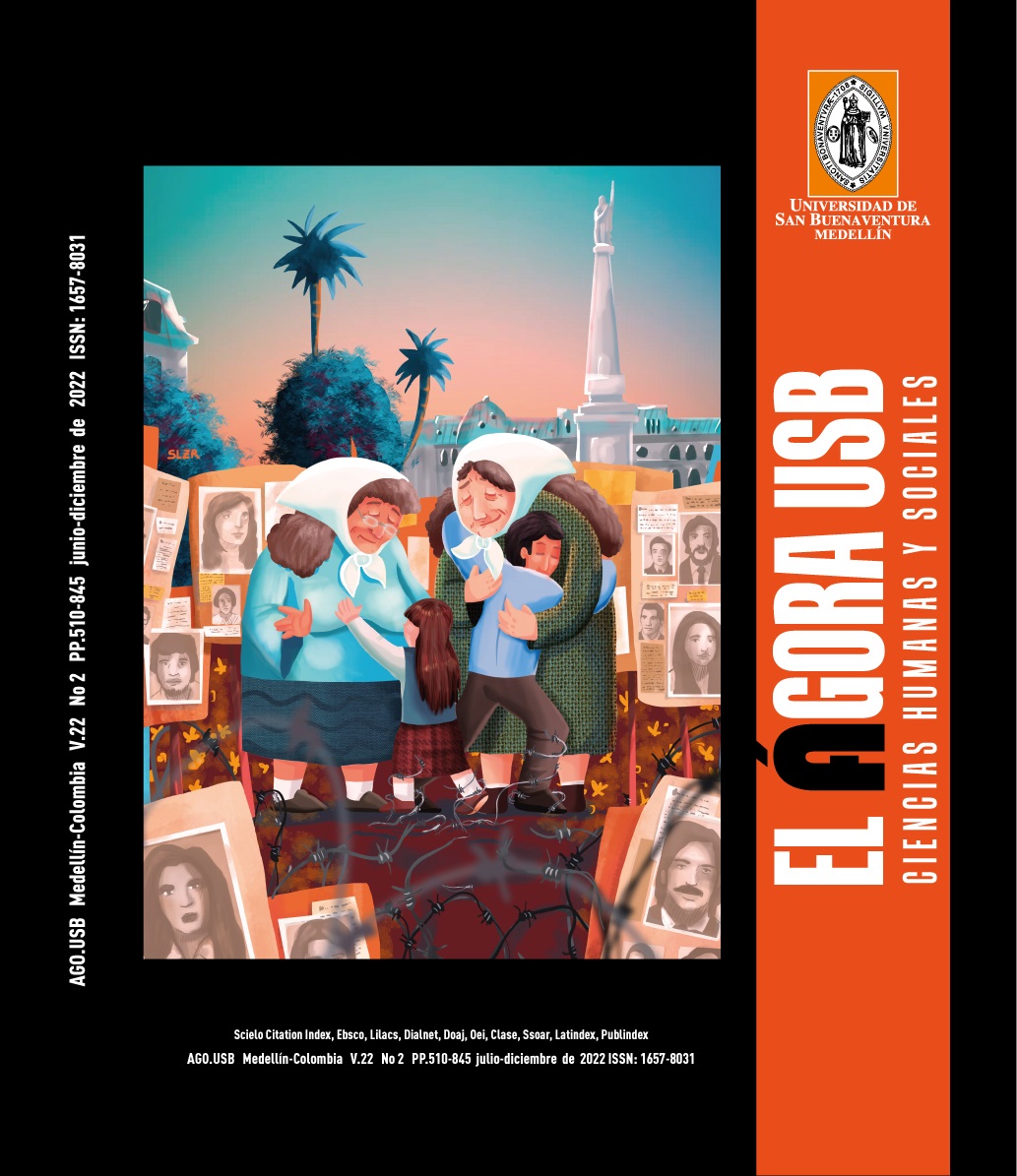Los autores y autoras también se adhieren a la licencia creative commons (4.0 https://creativecommons.org/licenses/by-nc-nd/4.0/deed.es)
Atribución - NoComercial - SinDerivar 4.0 Internacional (CC BY - NC - ND 4.0)
Resumen
Las emociones favorecen las movilizaciones, pero también las dificultan y que la narración constituye un enfoque privilegiado para entender las dinámicas de los movimientos sociales y sus integrantes. Desde un enfoque narrativo, se describe el entorno sociocultural que da lugar al nacimiento y participación de mujeres en movimientos de reivindicaciones de género y acciones de emprendimiento colaborativo e identifica y se analiza emociones negativas y positivas, aisladas y secuenciales, que movilizan la acción y generan solidaridades, como la ira, la impotencia y la tristeza o el orgullo y la alegría en lideresas comunitarias afrodescendientes en el departamento del Chocó (Colombia).
Palabras clave:
Referencias
Bolívar, A. (2012). Metodología de la investigación biográfico-narrativa: recogida y análisis de datos. En M. Passeggi , & M. Abrahao, Dimensões epistemológicas e metodológicas da investigação (auto)biográfica (Vol. II, págs. 79-109). Pontificia Universidad Católica Rio Grande do Sul.
Carspecken, P. (1996). Critical ethnography in educational research. A theoretical and practical guide. Routled.
Castells, M. (2012). Networks of outrage and hope. Polity.
Davis, J. (2002). Stories of change. Narrative and social movements. State University of New York Press.
Ewick, P., & Silbey, S.S. (1995). Subversive stories and hegemonic tales: Toward a sociology of narrative. Law and Society Review, 197-226.
Foucault, M. (1990). La vida de los hombres infames. Altamira.
García, J. (2020). Educación y resistencia: la creación de un campo epistémico por la intelectualidad afrocolombiana. Revista CS(30), 17-45. doi:10.18046/recs.i30.3843
Giddens, A. (1994). Modernidad e identidad del yo. Ediciones península.
Jasper, J. (1998). The emotions of protest: Affective and reactive emotions in and around social movements. Sociological Forum, 13, 397–424. doi:10.1023/A:1022175308081
Jasper, J. (2011). Emotions and social movements: Twenty years of theory and research. Annual Review of Sociology, 37, 285-303. doi:10.1 146/annurev-soc-081 309-1 50015
Jasper, J. (2014). Construction indignation: anger dynamics in protest movements. Emotion review, 3(6), 2008-2013. doi:10.1177/1754073914522863
Kemper, T. D. (1978). A social interactional theory of emotions. John Wiley.
Lamus Canavate, D. (diciembre de 2008). El lugar político de las mujeres en el movimiento negro/afrocolombiano. Reflexión Política, 10(20), 236-257. Obtenido de https://www.redalyc.org/pdf/110/11002018.pdf
Maines, D. (1993). Narrative's Moment and Sociology's Phenomena: Toward a Narrative Sociology. The Sociological Quarterly, 1(34), 17-38. Obtenido de http://www.jstor.org/stable/4121556
Mitchell, W. (1981). On narrative. University of Chicago Press.
Owens, L. (2009). Cracking under pressure. Amsterdam University Press.
Polletta, F. (2002). Plotting protest. Mobilizing stories . En J. Davis, Stories of change. Narrative and social movements (págs. 31-52). State University of New York Press.
Polletta, F. (2006). It was Like a fever: Storytelling in protest and politics. University of Chicago Press.
Polletta, F., Chen, P., Gharrity Gardner, B., & Motes, A. (2011). The Sociology of storytelling. Annual Review of Sociology, 37, 109-130.
Quijano-Mejía, C., Linares García, J., & Barrios Rodríguez, F. M. (2020). Las emociones en la resistencia y la defensa del territorio en Guamocó (Colombia). El Ágora USB, 20(2), 73-87. doi:10.21500/16578031.5131
Steinmetz, G. (1992). Reflections on the role of social narratives in working-class formation: Narrative theory in the social sciences. Social Science History, 16(3), 489-516.
Williamson, E. (2011). The magic of multiple emotions. Sociological Forum, 26, 45-70.
Wood, E. J. (2003). Insurgent collective action and civil war in El Salvador. Cambridge University Press.
Young, M. (2001). A Revolution of the Soul: Transformative Experiences and Immediate Abolition. En J. Goodwin, J. Jasper, & F. Polletta, Passionate Politics (págs. 99–114). University of Chicago Press.
Zapata Olivella, M. (1997). La rebelión de los genes. El mestizaje americano en la sociedad futura. Altamir Ediciones.




















